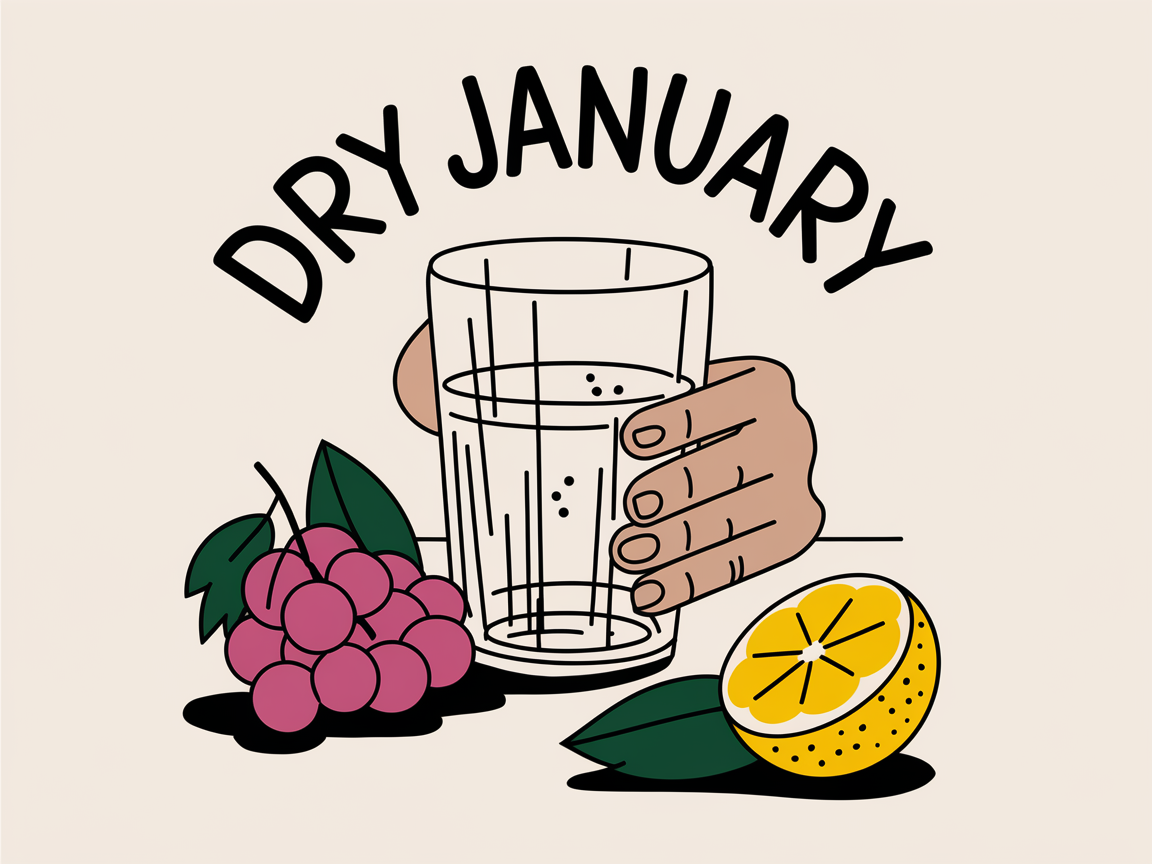
Dry Januaryの意味とは?~Dry Januaryで学ぶ英語の知恵~
「Dry January(ドライ・ジャニュアリー)」という興味深い社会現象が、近年世界的に注目を集めている。新年の1月を断酒月間として過ごすこの習慣は、2013年にイギリスで始まった健康的な取り組みだ▼この「dry」という形容詞には「アルコールのない」という意味があり、「wet」は反対に「アルコールが提供される」という意味で使われる。例えば、「dry county(アルコール販売が禁止されている郡)」や「wet bar(アルコールを提供するバー)」といった表現がある▼ この取り組みは、単なる一時的な断酒以上の意味を持つ。参加者の多くは、より健康的なライフスタイルへの「reset button(リセットボタン)」として捉えている。実際、この期間中に睡眠の質が改善し、エネルギーレベルが向上したという報告も多い▼興味深いことに、英語には飲酒に関する表現が豊富だ。「on the wagon(断酒中)」は、かつて禁酒運動者たちが水を運ぶ馬車に乗っていたことに由来するという。反対に飲酒を再開することは「fall off the wagon(断酒を破る)」と表現する▼ 2025年のDry Januaryは、特に「mindful drinking(意識的な飲酒)」という新しい概念と結びついている。これは完全な断酒ではなく、飲酒習慣を見直し、より意識的に選択することを意味する。「sober curious(節酒に興味がある)」という表現も、若い世代を中心に広がっている▼ このように、一見シンプルな「断酒」という行為が、豊かな英語表現と文化的な示唆を含んでいる。新年の始まりに、私たちの習慣を見直すきっかけとなるDry January。その実践を通じて、英語の表現力の奥深さにも触れることができる。言葉と習慣、その両方を学ぶ機会として、この取り組みは新たな意味を持つのかもしれない。

【英語訳】What is Dry January? Learning English Wisdom through Dry January
“Dry January” has been gaining worldwide attention as an interesting social phenomenon in recent years. This practice of spending January as an alcohol-free month began in 2013 in the UK as a health initiative. The adjective “dry” means “alcohol-free,” while its opposite, “wet,” is used to mean “where alcohol is served.” For example, there are expressions like “dry county” (a county where alcohol sales are prohibited) and “wet bar” (a bar that serves alcohol).
This initiative means more than just temporary abstinence from alcohol. Many participants see it as a “reset button” for a healthier lifestyle. In fact, many report improved sleep quality and increased energy levels during this period.
Interestingly, English has many expressions related to drinking. “On the wagon” (abstaining from alcohol) allegedly originates from temperance movement supporters who rode on water wagons. Conversely, resuming drinking is expressed as “fall off the wagon.”
Dry January 2025 is particularly associated with the new concept of “mindful drinking,” which means not complete abstinence but rather reviewing drinking habits and making more conscious choices. The term “sober curious” is also spreading, especially among younger generations.
Thus, the seemingly simple act of “alcohol abstinence” contains rich English expressions and cultural implications. Dry January, which prompts us to review our habits at the start of the new year, allows us to explore the depth of English expressions through its practice. This initiative might take on new meaning as an opportunity to learn both language and habits.







